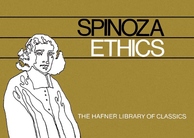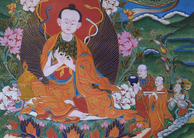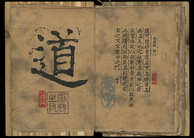|
Articles by Rocco A. Astore
Found 13 articles
2019, Vol. 11 No. 09
Questions regarding the very foundations of our reality abound throughout the history of world philosophies. For example, if we examine Plato’s “Allegory of the Cave,” as well as the Bhagavad Gita, we find that both masterpieces... Read Article »
2018, Vol. 10 No. 01
It is not often that one questions the nature of space, in fact, most people understand extension as independent of their mind as well as the objects that appear in their surrounding world. However, in a radical twist, fitting for the revolutionary... Read Article »
2017, Vol. 9 No. 10
Political philosophers and theorists alike continue to debate if more enlightened populations would be of value or not. This piece will contribute to that dispute by claiming that an enlightened populace is integral to the progress of free-societies... Read Article »
2017, Vol. 9 No. 04
This piece examines the ideologies and tactics used by fascist governments to validate and enforce their authority through Michael Mann’s work Fascists. By explicating Kant’s view of autonomy and progress, found in “An Answer to... Read Article »
2017, Vol. 9 No. 03
Is there a goal or purpose to history? And if so, how is one to determine its starting point, the ways in which it develops, and how it achieves its aim? Luckily, one philosopher, Hegel, analyzed history philosophically and tried to answer these... Read Article »
2017, Vol. 9 No. 03
Philosophers have long debated the meaning of virtuousness and the role that reason plays in achieving it. According to the Stoic philosophers Epictetus and Marcus Aurelius, virtue comes through a proper understanding of nature, its processes, as... Read Article »
2016, Vol. 8 No. 11
Throughout philosophy’s history, some of its most prominent thinkers have drawn inspiration from sources outside of its canon. It is of my opinion that one of these philosophers, Spinoza, in the first book of his Ethics, borrowed elements... Read Article »
2016, Vol. 8 No. 06
The revered Madhyamika Buddhist philosopher Nagarjuna is a central figure in the history of Eastern thought. In his Seventy Stanzas, Nagarjuna shares his views on many eternal questions including inquiries into what it means to have a proper understanding... Read Article »
2016, Vol. 8 No. 05
As a founder of sociology, Max Weber influenced the social sciences immensely. In his “Politics as a Vocation,” Weber claims that one of the definitions of the state is its ability to employ legitimate violence as a means of control... Read Article »
2016, Vol. 8 No. 03
Within The Enneads, Plotinus claims all existence derives from an entirely immaterial and benevolent source which he calls the One.[1] At the same time, he also states matter corrupts that which is immaterial, and one should not understand it as... Read Article »
2016, Vol. 8 No. 02
The path towards and the meaning of Nirvana have been central issues to many theorists of the Buddhist Tradition. With this paper, I will describe the path toward and the state of Nirvana from a Theravada and Mahayana Buddhist perspective. By doing... Read Article »
2016, Vol. 8 No. 02
Within the works of Spinoza, as well as those of Descartes, issues concerning the nature of free-will come to the fore. With this essay, I will first explain Spinoza’s and Descartes’s notions regarding freedom of the will, its existence... Read Article »
2016, Vol. 8 No. 01
Within Lao Tzu’s Tao-Teh-Ching and Machiavelli’s The Prince, there are similar notions concerning how a ruler should maintain order and how he/she can be an effective leader. According to the former, it is best if people are blind to... Read Article »
Expedited Article Review
Submit an article and get a decision fast.
If you need a fast decision, INQUIRIES Journal offers expedited processing of your submission for a small fee. Depending on the expedited review option you choose, you can receive a decision in as few as 5-days.
In addition to a shorter review period, the fee supports the journal's continued operation and open-access publishing model. Standard submissions are always free. Submit Now » - Submit an Article to Inquiries Journal -
|













